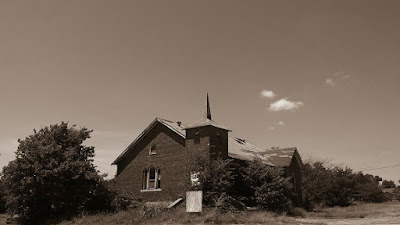Friday, January 29, 2016
Rural Gothic
When I've been asked what genre I work in, it's always been assumed my answer will be Southern Gothic. It's easy to see why. Much of my work does tend to lean in that direction, what with the grotesque backwoods imagery, overwrought and lurid characters, and themes of depravity, decay and obsession with the lost glories of the past. It would seem that way to the casual passerby latching on to those images, and that's just fine if it sells a book. Or two. Or thirty-thousand.
I've always preferred to label my writing under my own genre, that being "rural gothic". It's not so much about embracing the southern sensibilities of my birthplace but the spirit of folk of the country. The farmer running the produce market outside of town. The little old man working the projector at the local movie theater. The potluck dinners at the Church of Christ in a forlorn, shadowed part of town. Bonfires and beer drinking and fellowship. And other things. Like the perversion of old time religion. Families ravaged by booze, poverty, and abuse. Murder. Holler magic and things that are dead that don't stay down. Those are my people and my places.
I write about a place referred to as "Little Dixie". It's a legit place. Look it up. Situated in the southeastern sliver of the Oklahoma, it is a nook of the state quite different from the rest. The folkways, the food, the architecture, even the atmosphere is distinctly "southern". Many of the towns in my cosmos are based upon actual towns in the region, places I grew up in and visited often.
I've really tried to avoid falling into the whole "hillbilly horror" trap, although sometimes it's unavoidable. Carictures of my culture depress me, as I know all too well many of these carictures are anything but. Poverty and alcohol do strange things to people, as due dead customs and unfashionable mindsets. We're not all toothless bumpkins, laid out flat drunk on our front lawn with a bottle of Mad Dog in one hand, a Newport in the other, and a hungry dog whining under the porch.
And then, sometimes, we are just that. And therein lies the melancholy.
Subscribe to:
Post Comments (Atom)

No comments:
Post a Comment